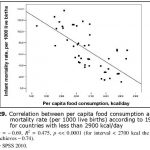Rebuilding The Left Is Crucial To Stemming The Surge Of Europe’s Far Right
No Comments yet
C.J. Polychroniou
06-12-2024 ~ Rebuilding the Left Is Crucial to Stemming the Surge of Europe’s Far Right.
Just over half of the 373 million citizens eligible to vote across the 27 European Union (EU) countries bothered to cast a ballot during the four-day European Parliament (EP) election that concluded on June 9. Germany — the EU’s most populous country, and its political and economic powerhouse but with its days as an industrial superpower rapidly coming to an end — saw a record-high voter turnout, with close to 65 percent of eligible voters turning out for the EP elections. Apparently, German citizens may have felt that the “business as usual” approach both in Brussels and inside their own country could no longer go on, which is why they dealt a humiliating defeat to the coalition government of Chancellor Olaf Scholtz. His ruling party, the Social Democrats, recorded their worst-ever result in EP elections, obtaining less than 14 percent of the vote. The conservatives — whose policies on immigration and climate have shifted close to the position of the far right on these issues — came in first, with over 30 percent of the vote, while the far right Alternative for Germany (AfD) came second by pulling 16.5 percent of the vote, up from 11 percent in 2019. The Green Party’s vote dropped by 8.5 percentage points, from 20.5 percent to 12 percent.
Undoubtedly, in Germany’s political and cultural environment today, anti-immigrant and anti-climate policies, and overall support for hardcore conservative and far right outlooks won.
By contrast, Greece, one of the EU’s peripheral countries, saw an explosive and unprecedented (by Greek standards) abstention rate, estimated to be around 60 percent. The ruling conservative party of New Democracy won the elections with 28.31 percent of the vote, taking seven seats, but suffered heavy losses (more than 1 million votes) from the last general elections. The once-radical Syriza party came second with 14.92 percent and four seats, while the social democratic PASOK came third with 12.79 percent and three seats. Greek Solution — an ultra-nationalist far right party which was created in the aftermath of Golden Dawn’s demise following its conviction for operating a criminal enterprise — came fourth with 9.3 percent and two seats, while another far right party, Niki, won 4.37 percent and one seat. The Communist Party received 9.25 percent of the vote and two seats.
The record-low voter turnout in Greece is an indication that its own citizens must have felt there is very little they can do to change the shape of the EU and therefore the course of their everyday lives, so why bother to take part in a boring political ritual of little practical consequence? Indeed, average Greeks are fighting to make ends meet even if the message spewed on almost every public occasion from the mouth of their right-wing Prime Minister Kyriakos Mitsotakis is that Greece has not only turned the corner but that its economy has become more dynamic than those of Europe’s core economies. The fact is that the Greek economy remains a low-tech and low-added value economy, with government debt to GDP higher than it was prior to the bailouts and the average monthly salary 20 percent lower than 15 years ago while unemployment remains above 10 percent.
Voter turnout in France, the second-largest economy in Europe, did not even reach 50 percent, but the French citizens that decided to cast a ballot for this year’s EP elections expressed a deep desire for change by swinging to the far right and delivering in turn a massive blow to President Emmanuel Macron’s Renaissance party. Marine Le Pen’s National Rally came out on top with 31.5 percent of the vote, more than double the share of Macron’s party. Within an hour following the election results, Macron announced that he would dissolve the lower parliament and hold parliamentary elections at the end of the month. His decision to call a snap election was obviously prompted by the apparently unstoppable momentum of the far right, but Macron said he was “confident in the capacity of the French people to make the right choice for themselves and for future generations.” Marine Le Pen welcomed the challenge as she now feels that the time has come for her party to finally take power. And the first opinion poll suggests that the National Rally could win the snap election, but fall short of an absolute majority.
Like the AfD, the far right National Rally is anti-immigrant, in love with fossil fuels and pro-Israel. Incidentally, the European far right has thrown its weight behind Israel, exchanging its historical commitment to antisemitism for anti-Muslim hatred.
The far right also made major gains in Austria and the Netherlands. Austria’s far right Freedom Party came in first with 27 percent in the EP elections, and Geert Wilders’s own Freedom Party in the Netherlands secured seven seats in the new European Parliament, from zero seats in the 2019 EP elections.
In Italy, less than half of the electorate voted, and Giorgia Meloni’s far right Brothers of Italy won the most votes, with 28.8 percent, which is greater than it had secured in the 2022 national elections.
Only in some Nordic countries (Sweden, Denmark and Finland) was there a slight retreat of the far right. In that region of Europe, pro-environmental issues remain priorities, though it’s a different matter when it comes to immigration and integration. These countries had different approaches to immigration until a few years ago, but they have now all moved in the same direction, which is to adopt “more restrictive immigration and integration policies,” points out migration specialist Chris Horwood.
The results of the 2024 EP elections confirm what has been rather obvious to careful observers for at least the past decade or so, which is that Europe has been lurching further and further to the right to the point that the far right has now become mainstream and normalized. The left must now ask itself: Why is the far right gaining favor across Europe, and can it be contained?
The first and most important reason for the rise of the far right has to do with the very nature and architecture of the European Union. The main purpose of its predecessor, the European Economic Community (EEC), from the late 1970s onwards has been to increase competitiveness in the global market and to boost corporate profits as the era of “managed capitalism” had come to an end. Instead of social protections and growth through fiscal-oriented policies, the new economic approach called for privatization and liberalization of financial markets, price stability and labor market reform. The aim, as revealed by the Single European Act of 1986, was for the EEC to become “a market without a state” and to normalize a noncommitment to welfare. All major decisions were to be made at the top, with powerful countries like Germany almost entirely controlling the economic and social agenda. Subsequently, most member states lost their actual sovereignty as national governments were compelled to follow the commands of the euro masters, and citizens were relegated to a status equal to that enjoyed by the subjects of ancient Rome.
It is within the confines of these structural realities in the design of the EU that political extremism starts to take shape. And lest we forget, Europe is the birthplace of fascism. It would not take much for the old demons to reappear.
The EU’s core periphery divide (and the EU has in fact a number of peripheries — the southern European periphery, the Baltic periphery and the Eastern European periphery) is a major factor for the rise of the far right. In Germany, the AfD was founded by Euroskeptics who opposed the euro, further European integration and the periphery’s bailouts during the 2010 eurozone debt crisis. Euroskeptic parties, movements and sentiments also began to spread in other core European countries around the same time, including Austria, Belgium and the Netherlands. In the periphery (Greece, Italy, Spain and Portugal), the far right began to pick up steam during the period of the eurozone’s debt crisis and it is in the context of the collapsing socioeconomic conditions that immigration becomes a catalyst behind its surge.
The growing economic inequalities inside different EU member states also provided fertile ground for the spread of far right ideology as mainstream left-wing parties had fully capitulated themselves to the European project and to neoliberalism. The far right employs an anti-establishment language stolen from the old left and presents itself as the defender of working-class interests. Brussels and the domestic elite become its targets, though the far right has no intention of upsetting the functioning of a capitalist system. It’s a ploy for coming to power. Hence its promises to voters of a return to a golden past, which includes bringing back the social state and getting rid of immigrants and refugees.
The establishment left, in turn, has nothing to offer but shallow talk about containing austerity and envisioning a more social and humane Europe. Not a word about radical social change, national dignity, popular democracy and socialism. The fact that the European left failed (and continues to fail) to see that its co-optation into the European capitalist universe bears primary responsibility for the rise of the far right is a matter that should consume historians for a long time to come.
The most dramatic example of the outright betrayal of the left to its own followers takes place in Greece in 2015, under the government of the Coalition of the Radical Left (Syriza), with the bailout referendum. “I call on you to say a big ‘no’ to ultimatums, ‘no’ to blackmail,” Prime Minister Alexis Tsipras cried. “Turn your back on those who would terrorize you.”
Greek voters of all political orientations (even right-wingers) listened to the fiery pseudo-leftist and delivered a resounding no to EU’s bailout terms. Sixty-one percent of the voters said “no” to a deal that would have imposed even more sadistic austerity measures on a nation whose economy and public health care system had collapsed while the official unemployment had climbed to 28 percent in 2014. The referendum scared the living daylights out of Greece’s masters, including first and foremost German Chancellor Angela Merkel. But within just a few days, Tsipras caved in to the pressures of the euro masters, shredded into pieces the referendum and signed a new bailout agreement.
It will take generations for Greek voters to trust the left again.
Yet, just like in the past, the only way to stem the surge of the far right across Europe is with the presence of a politically active, anti-systemic left. In much of the 20th century, this role was carried out by Communist parties, but most of them have joined the dustbin of history and Marxism has been reduced to an intellectual or academic exercise.
Rebuilding the left, however, is of absolute critical importance for slowing the surge of the far right across Europe. Not for the sake of the EU, but for Europe’s real democracy. To start with, a new narrative is needed to go beyond the virtually exclusive emphasis on austerity as a critique of contemporary capitalism, one that offers a viable alternative for creating just and equitable societies. A conception of a viable socialist political economy needs to be advanced and the transformation of capitalism must be the centerpiece for any socialist program. Movements and parties fighting against inequality and for social justice, peace and the environment should be natural allies in the struggle to create a better world. Of course, in order for this to happen, sectarianism, one of the most prevalent but demoralizing features of left political culture, needs to be overcome. This is a must in the historic mission of the left, which remains a world to win.
Copyright © Truthout. May not be reprinted without permission.
C.J. Polychroniou is a political scientist/political economist, author, and journalist who has taught and worked in numerous universities and research centers in Europe and the United States. Currently, his main research interests are in U.S. politics and the political economy of the United States, European economic integration, globalization, climate change and environmental economics, and the deconstruction of neoliberalism’s politico-economic project. He is a regular contributor to Truthout as well as a member of Truthout’s Public Intellectual Project. He has published scores of books and over 1,000 articles which have appeared in a variety of journals, magazines, newspapers and popular news websites. Many of his publications have been translated into a multitude of different languages, including Arabic, Chinese, Croatian, Dutch, French, German, Greek, Italian, Japanese, Portuguese, Russian, Spanish and Turkish. His latest books are Optimism Over Despair: Noam Chomsky On Capitalism, Empire, and Social Change (2017); Climate Crisis and the Global Green New Deal: The Political Economy of Saving the Planet (with Noam Chomsky and Robert Pollin as primary authors, 2020); The Precipice: Neoliberalism, the Pandemic, and the Urgent Need for Radical Change (an anthology of interviews with Noam Chomsky, 2021); and Economics and the Left: Interviews with Progressive Economists (2021).
You May Also Like
Comments
Leave a Reply








